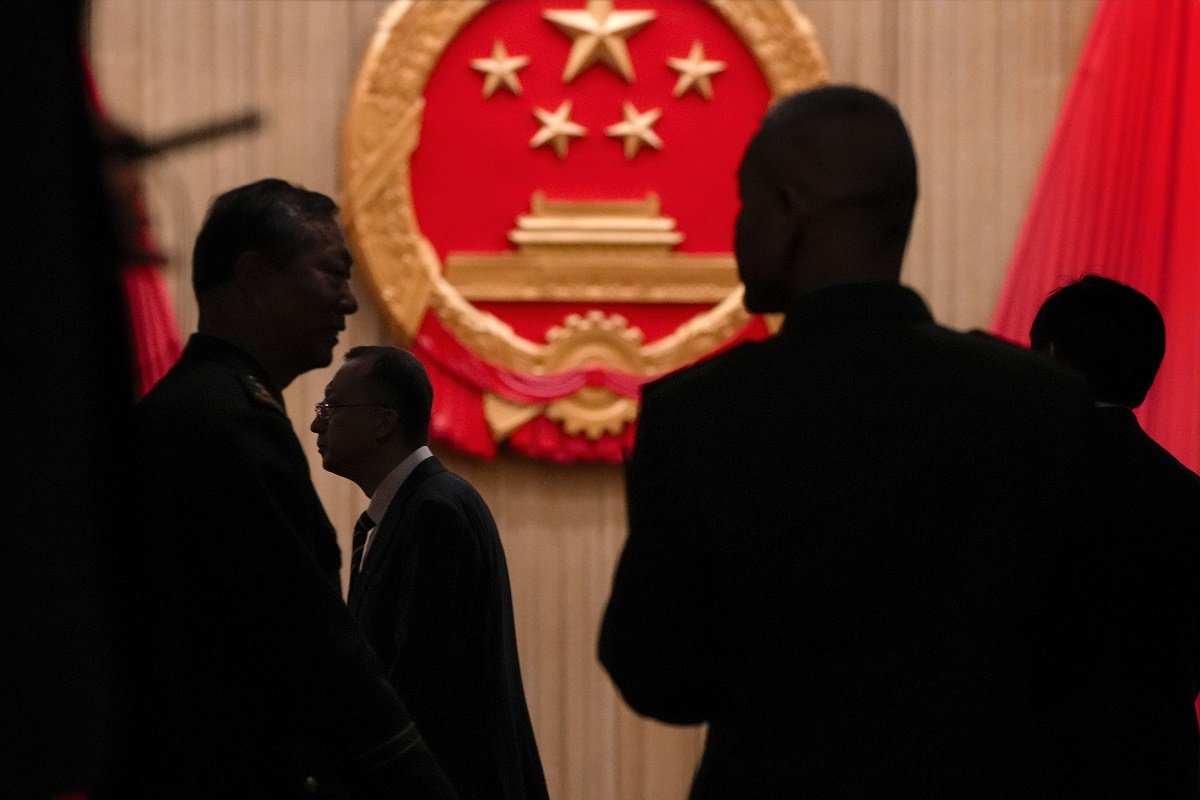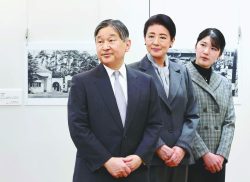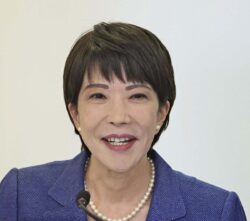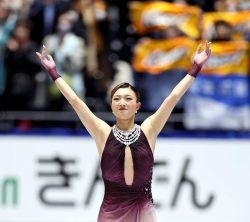China’s Congress Ends with a Show of Unity behind Xi’s Vision for National Greatness

Delegates arrive for the closing session of the National People’s Congress (NPC) at the Great Hall of the People in Beijing, Monday, March 11, 2024.
16:58 JST, March 11, 2024
BEIJING (AP) — China’s national congress was concluding its annual session Monday with the usual show of near-unanimous support for plans designed to carry out ruling Communist Party leader Xi Jinping’s vision for the nation.
The weeklong event, replete with meetings carefully scripted to allow no surprises, has highlighted how China’s politics have become ever more calibrated to elevate Xi.
Monday’s agenda lacked the usual closing news conference by the premier, who in the past was responsible for economic affairs as the party’s No. 2 leader. It was the one time each year when journalists could directly question a top Chinese leader.
The news conference has been held most years since 1988, and the decision to scrap the event emphasizes Li Qiang ‘s relatively weak status. Past premiers have played a much larger role in leading key economic policies such as modernizing state companies, coping with economic crises and leading housing reforms that transformed China into a nation of homeowners.
The nearly 3,000-member congress approved revisions to the Organic Law of the State Council that direct China’s version of a cabinet to follow Xi’s vision. The vote was 2,883 to eight, with nine abstentions. Other measures passed by similarly wide margins. The most nays were recorded for the annual report of the supreme court, which was passed by a 2,834 to 44 vote.
“The Communist Party always called the shots but the party leaders who ran the State Council used to have a much freer hand in setting economic policy,” Neil Thomas, a Chinese politics fellow at the Asia Society Policy Institute, said in an emailed comment.
“Xi has been astonishingly successful in consolidating his personal hold over the party, which has allowed him to become the key decisionmaker in all policy domains,” he said.
In foreign policy, China appears to be sticking with Wang Yi as foreign minister, who stepped back into the post last summer after his successor, Qin Gang, was abruptly dismissed without explanation after a half-year on the job.
Analysts thought the Communist Party might use the annual congress to appoint a new foreign minister and close the book on an unusual spate of political mishaps last year that also saw the firing of a new defense minister after a few months on the job.
The Organic Law of the State Council is being revised for the first time since it was adopted in 1982. The revision calls for the State Council to “uphold the leadership of the Communist Party of China.” It also adds the governor of China’s central bank to the body.
Echoing words seen in just about every proposal, law or speech made in China these days, it spells out that China’s highest governing officials must adhere to the party’s guiding ideology, which refers back to Marxism-Leninism and Mao Zedong Thought and culminates in Xi’s philosophy on “Socialism with Chinese Characteristics for a New Era.”
Alfred Wu, an expert on Chinese governance at the National University of Singapore, said the revision institutionalizes previously made changes, making it harder to reverse them. He described the congress as a “one-man show” that shows Xi’s determination to create a system in which the party leads on policy, diminishing the role of the State Council and the legislature.
“His determination is very clear,” Wu said. “He is willing to change everything.”
Along with following “the guidance of Xi Jinping Thought” and other party directives, developing “new quality productive forces” — a term coined by Xi last September — emerged as a catchphrase at this year’s congress.
The term suggests prioritizing science and technology as China confronts trade sanctions and curbs on access to advanced know-how in computer chips and other areas that the U.S. and other countries deem to be national security risks.
As the party champions innovation and self-reliance in technology as ways to build a modern, wealthy economy, it is leaning heavily on more overtly communist ideology that harkens to past eras. Xi has fortified the party’s role across the spectrum, from culture and education to corporate management and economic planning.
“Greater centralization of power has arguably helped Xi to improve central government effectiveness,” Thomas said, “but the benefits may be outweighed by the costs of stifling political discussion, disincentivizing local innovation and more sudden policy shifts.”
During this year’s congress, many provincial meetings were opened to the media for the first time since the COVID-19 pandemic, though they were carefully scripted, with prepared remarks and none of the spontaneity once glimpsed in decades past.
The contrast with polarized politics in the U.S. and robust debate in other democracies could not be more stark: China’s political rituals, void of any overt dissent, put unity above all.
Marching orders endorsed by the congress include calls to ensure national security and social stability at a time when job losses and underpayment of wages have sparked a growing number of protests.
"News Services" POPULAR ARTICLE
-

American Playwright Jeremy O. Harris Arrested in Japan on Alleged Drug Smuggling
-

Japan’s Nikkei Stock Average as JGB Yields, Yen Rise on Rate-Hike Bets
-

Japan’s Nikkei Stock Average Licks Wounds after Selloff Sparked by BOJ Hike Bets (UPDATE 1)
-

Japan’s Nikkei Stock Average Buoyed by Stable Yen; SoftBank’s Slide Caps Gains (UPDATE 1)
-

Japanese Bond Yields Zoom, Stocks Slide as Rate Hike Looms
JN ACCESS RANKING
-

Tokyo Economic Security Forum to Hold Inaugural Meeting Amid Tense Global Environment
-

Keidanren Chairman Yoshinobu Tsutsui Visits Kashiwazaki-Kariwa Nuclear Power Plant; Inspects New Emergency Safety System
-

Imports of Rare Earths from China Facing Delays, May Be Caused by Deterioration of Japan-China Relations
-

University of Tokyo Professor Discusses Japanese Economic Security in Interview Ahead of Forum
-

Japan Pulls out of Vietnam Nuclear Project, Complicating Hanoi’s Power Plans

























